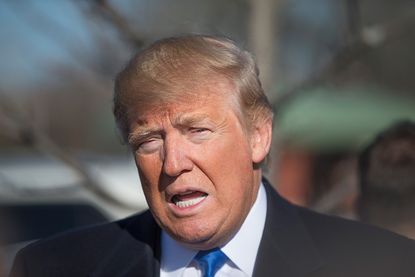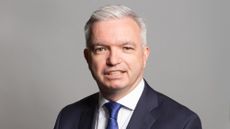Here's how Trump's wall plan could expand the black market


Donald Trump's precise plan to build a border wall and make Mexico pay for it involves confiscating remittance payments that Mexicans living in America send home to their families, he revealed on Tuesday. It's a plan that in practice would expand the black market for money transfers and even increase crime:
Security and money-laundering experts who watch the underground financial economy say that in all likelihood, such a rule would not stop the remittances: It would simply send them into the underground economy. Couriers or others will help facilitate money transfers across the border; Mexican nationals could also transfer money through a digital currency like Bitcoin."I guarantee you, before the wall has five bricks in it," said [Don Semesky, a former financial investigator at the IRS and DEA], "there would be an informal black market."Either way, the result would be devastating for law enforcement: they’d lose a powerful tool to trace dubious money tied to drug-runners, terrorists, or human traffickers. [Politico]
Trump's idea would also have a decimating effect on money transfer businesses like Western Union. "He would probably kill the industry," Semesky said.
Subscribe to The Week
Escape your echo chamber. Get the facts behind the news, plus analysis from multiple perspectives.

Sign up for The Week's Free Newsletters
From our morning news briefing to a weekly Good News Newsletter, get the best of The Week delivered directly to your inbox.
From our morning news briefing to a weekly Good News Newsletter, get the best of The Week delivered directly to your inbox.
Create an account with the same email registered to your subscription to unlock access.
Sign up for Today's Best Articles in your inbox
A free daily email with the biggest news stories of the day – and the best features from TheWeek.com
Bonnie Kristian was a deputy editor and acting editor-in-chief of TheWeek.com. She is a columnist at Christianity Today and author of Untrustworthy: The Knowledge Crisis Breaking Our Brains, Polluting Our Politics, and Corrupting Christian Community (forthcoming 2022) and A Flexible Faith: Rethinking What It Means to Follow Jesus Today (2018). Her writing has also appeared at Time Magazine, CNN, USA Today, Newsweek, the Los Angeles Times, and The American Conservative, among other outlets.
-
 Magazine interactive crossword - April 26, 2024
Magazine interactive crossword - April 26, 2024Puzzles and Quizzes Issue - April 26, 2024
By The Week US Published
-
 Magazine solutions - April 26, 2024
Magazine solutions - April 26, 2024Puzzles and Quizzes Issue - April 26, 2024
By The Week US Published
-
 Magazine printables - April 26, 2024
Magazine printables - April 26, 2024Puzzles and Quizzes Issue - April 26, 2024
By The Week US Published
-
 Mark Menzies: Tories investigate MP after 'bad people' cash claims
Mark Menzies: Tories investigate MP after 'bad people' cash claimsSpeed Read Fylde MP will sit as an independent while party looks into allegations he misused campaign funds on medical expenses and blackmail pay-out
By Arion McNicoll, The Week UK Published
-
 Why Johnson won't just pass Ukraine aid
Why Johnson won't just pass Ukraine aidSpeed Read The House Speaker could have sent $60 billion in military aid to Ukraine — but it would have split his caucus
By Peter Weber, The Week US Published
-
 Sudan on brink of collapse after a year of war
Sudan on brink of collapse after a year of warSpeed Read 18 million people face famine as the country continues its bloody downward spiral
By Peter Weber, The Week US Published
-
 Trump's first criminal trial starts with jury picks
Trump's first criminal trial starts with jury picksSpeed Read The former president faces charges related to hush money payments made to adult film star Stormy Daniels
By Peter Weber, The Week US Published
-
 How will Israel respond to Iran's direct attack?
How will Israel respond to Iran's direct attack?Speed Read Iran’s weekend attack on Israel could escalate into a wider Middle East war
By Peter Weber, The Week US Published
-
 US, Israel brace for Iran retaliatory strikes
US, Israel brace for Iran retaliatory strikesSpeed Read An Iranian attack on Israel is believed to be imminent
By Peter Weber, The Week US Published
-
 Congress honors real-life Rosie the Riveters
Congress honors real-life Rosie the RivetersSpeed Read These American women reshaped the work force during World War II
By Peter Weber, The Week US Published
-
 Outgunned Ukraine could fall, US general warns
Outgunned Ukraine could fall, US general warnsSpeed Read Without more US aid, Ukraine is at risk of losing the war
By Peter Weber, The Week US Published